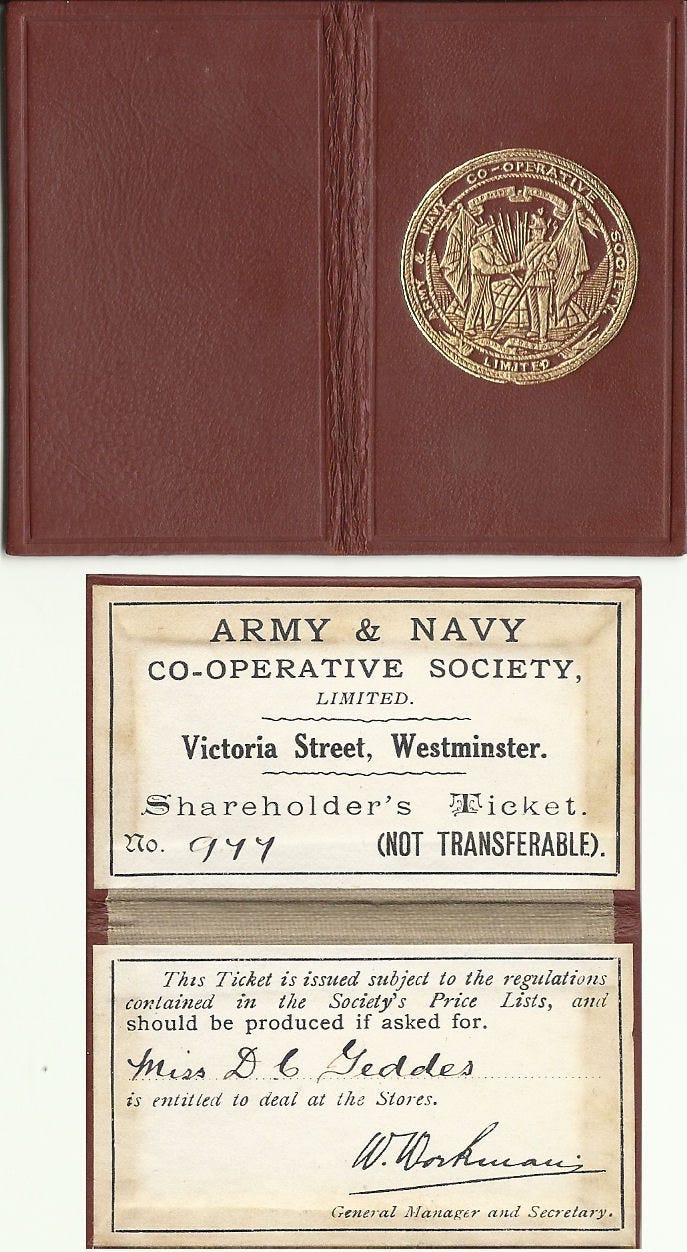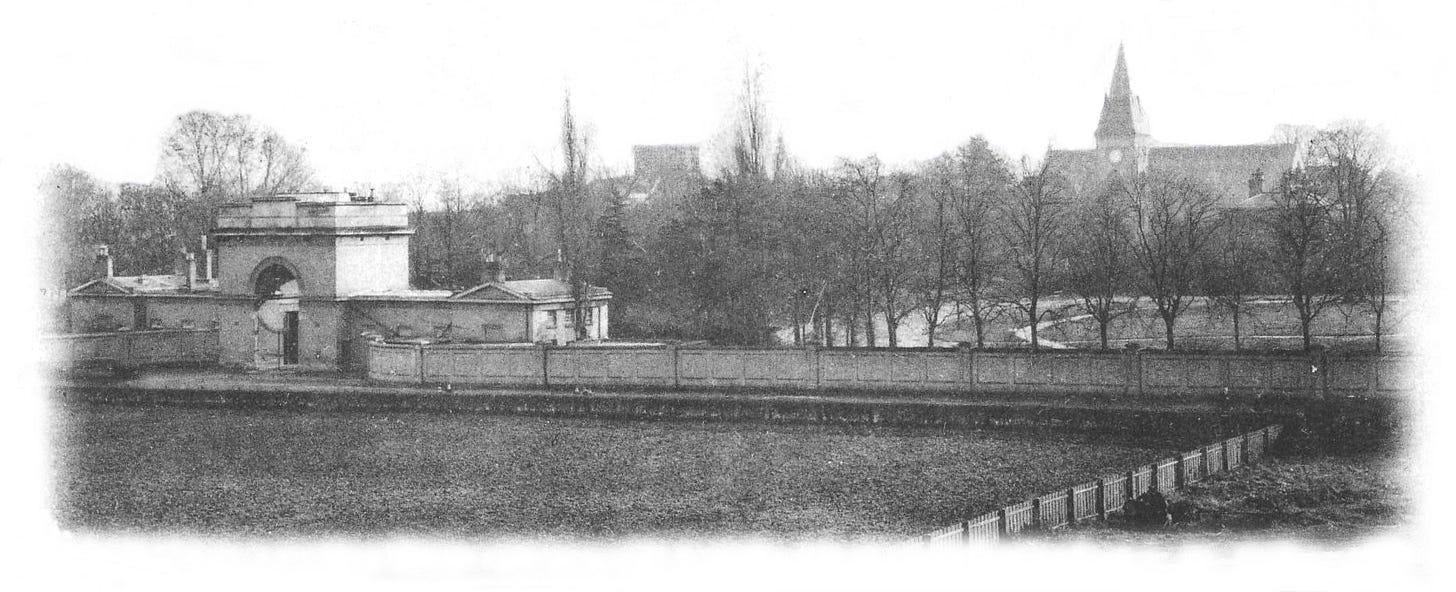Keeping it in the family
Margaret Williamson's sister and brother-in-law were private detectives - and so was her own partner. But her experience showed that life as a tec's other half could be a difficult one.
Margaret Catherine Williamson (1849-1918) was born into a wealthy middle-class London family, but she would die in very different circumstances, having spent most of her adult life surrounded by private detectives. She was an older sister of Antonia Williamson, a woman I have researched before for my book Sister Sleuths: A History of Female Detectives in Britain (Pen & Sword). Antonia had been married off to her first cousin, and after having two children, decided - against her husband's wishes - that she wanted a job. She had gone to the office of Met police detective-turned-private eye Maurice Moser, off the Strand in London, and he had duly given her a job. Antonia started an affair with Moser, which led to the collapse of both their marriages and highly publicised divorces. Although the relationship with Moser was ultimately unhappy, it enabled Antonia to train as a private detective and set up in business herself.
You can read more about Margaret’s sister Antonia in my book
Her older sister Margaret, however, did not work as a private detective - but she did start a long-term relationship with one. Like her sister, Margaret claimed to have married (in the 1911 census, it was stated that she had been married for 23 years), but is similarly likely to have actually simply lived with him and referred to him as her husband. He was George Elliott, born around 1849 in Marylebone, and he was not one of London's most successful detectives, although he worked as such for a long time. He is mentioned in the press in 1886 as a private detective, but may also be the man referred to as 'an amateur detective' in a pickpocketing case from 1880, suggesting that a curiosity in what was going on around him may have led to him taking on the job professionally.
The couple had two children - Eleanor Maud Marie, born in September 1888, and George WIlliam Anthony, born almost exactly two years later. Both Eleanor's birth and baptism records state that her father is a private detective; but when George was born in 1890, his father's occupation was given as law clerk (it was common for law clerks to become private detectives, but to be listed as one after being a detective meant either a desire to cover up the real occupation as it could be viewed negatively by some, or that Elliott was between jobs and had to work as a clerk to make money). George Junior was not baptised until 19 May 1904, when he was nearly 14 years old, and this might have been following his parents' separation. At this point, his father's occupation is given as a private inquiry agent for the Army & Navy Stores.
At one point, George Elliott was a detective for the Army & Navy Stores on Victoria Street (image by Joedkins)
The Elliotts moved around London a fair bit, and they weren't unusual in doing so. In 1888-1889, they had been living at Spencer Street in Clerkenwell; in 1890, they were at Grimston Road in Parsons Green. From there, they moved to St Maur Road in Fulham, and then, by 1901, they were in 75 Cobourg Buildings, Westminster. In 1904, Margaret and the children, at least, were living at 19 Cumberland Street, Pimlico. Although this was within easy reach of both the A&N Stores at Victoria Street, and its preserved provisions factory in Coburg Road, this does not mean that George was living in the family home. Certainly, by 1911, he and Margaret were living apart, although both were in Pimlico: George was boarding with a family on Denbigh Street, while Margaret was at Moreton Place.
Margaret had responsibility for the children, as was of course common. She was the parent who registered both her children's births - taking a month in each case - and who looked after them while her husband worked. Her sister Antonia was involved in the women's suffrage cause, but there's no evidence of Margaret being. As is so often the case, we know more about George Elliott because his occupation was demanded on official documents: when daughter Eleanor married in July 1918, her father is recorded as a private enquiry agent, for example. By this point, her mother might have been seriously unwell - she is not a witness at the wedding - and one of the things we do know about her in adulthood is that she died in September 1918 at the London County Lunatic Asylum.
The London County Asylum at Hanwell
Son George married in August 1924, and stated that his father was a deceased enquiry agent. There is no record of his father's death. Neither is there any record of his birth, and he is not present on any census prior to 1891. Therefore, the small references to a George Elliott in 1880, and one of him as a private detective six years later, are two of the few bits of evidence we have for him prior to his relationship with Margaret. His career as a private detective, however, inspired son George to follow in his footsteps, albeit only for a while: his marriage certificate gives his profession as assistant enquiry agent.
One of the few things we know about George Elliott is that he was a cigar smoker. A press article in 1888 records him as having visited a tobacconist's shop at 368 Oxford Street to buy a fourpence cigar. The shopkeeper, Meyer Franklin, accused him of trying to defraud him and while Elliott was trying to argue his innocence, Frankling 'seized him by the wrist and threw him on to the pavement outside'. Franklin was fined ten shillings for his assault on Elliott.
So he was a cigar smoker with an unhappy marriage, and he probably died sometime between 1918 and 1924. He had a long career as a private detective. But George Elliott remains something of a mystery, a man who emerged from nowhere and then later vanished again. Perhaps he was the perfect private detective in that sense. However, it is his wife, Margaret, who intrigues me just as much: a woman immersed in the world of the private detective, who ended up in a lunatic asylum. What happened to her, and how difficult was it to be a detective’s sister, and a detective’s wife? One suspects that hers was not an easy life.




